On October 8, the Japanese steel industry giant Kobe Steel admitted that its factories and subsidiaries are suspected of widespread counterfeiting of aluminum and copper products and have been fraudulent for 10 years. When the news came out, it caused the public to be upset. This is not only because Kobe Steel is a well-known 100-year-old steel company in Japan, but also because it has a wide range of supply fields, including military, trains, aircraft, automobiles, and even rockets. Such heavy news media naturally raced to report, and everyone sighed. Japanese manufacturing that is almost synonymous with “quality products†is likely to be involved and walk down the altar. In the automotive field, the mainstream Japanese car brands are almost without exception, all of them are "invited." In the first batch of vehicles involved in the announcement of Kobe Steel, there were a total of 29 models including Toyota, Honda, Nissan, Lexus, and Subaru. However, this is only the first batch. Even the media called it a "catastrophe" of Japanese cars and predicted that with the collapse of Japan's manufacturing image, Japanese cars will enter a "cold winter" of sales. However, many netizens seem to have different attitudes. Unlike the previous "one-sided" condemnation and taunting of Japanese cars, this commentary was more rational and objective. Over 60% of netizens will also purchase Japanese cars In order to further understand the consumer's perception of Japanese cars after the accident of the steel manufacturing industry in Kobe Steel was revealed, the Automobile Sankei.com launched a small survey - Will the data fraud of Kobe Steel make you buy a Japanese car? The survey results showed that 65% of netizens chose to “will also purchase Japanese cars without affecting my choiceâ€. 28% of users wait and see, 7% choose to buy other brands. Some netizens believe that the superstructure of Japanese society has not adapted to its economic foundation, and even to some extent has hindered the development of productivity. In the case of the Kobe steel fraud, although it tampered with product data, it still complied with national standards. Downstream companies blindly pursue high standards and high quality, forcing suppliers to resort to falsification of data. In spite of this, the falsification incident lasted for ten years and did not reveal the quality problems of the products related to this, and there was no accident or casualty incident. It can be seen that these vehicles involved are still safe and reliable. This is the reason why 60% of netizens are still willing to purchase Japanese cars. "A decade of data alteration without fatal quality problems can only indicate that the quality standards of downstream companies are in excess, compelling upstream fraud." "We should not laugh at them for fraud, and we should reflect on why our qualified products are not as good as they are. Their fake products!†Some netizens commented on the relevant news comment area. Of course, some netizens accuse them of saying, “A decade of large-scale falsifications has occurred on a large scale, but Japan’s testing agencies have not found it. Is the level of detection low or the conscience dark?†“Originally, the myth of Japanese manufacturing is only myth.†30% of netizens still trust in manufacturing in Japan In this survey, 30% of netizens still believe that Japanese manufacturing is reliable and reliable; 35% of netizens said that although there is falsification of data, the quality of Japanese cars is indeed good; 35% of netizens said they no longer believe in Japanese manufacturing. Among the surveyed participants, 42% had netizens without cars, 23% were Japanese owners, autonomous, German, and American owners each accounted for 7%, and legal owners accounted for 14%. 29% of netizens said they would still prefer to buy Japanese brands in the future, 50% would like to buy Ashkenazi brands, another 14% would like to buy domestic brands, and the remaining 7% would choose to support legal brands. It seems that the accumulated loyalty of consumers for Japanese cars over the years is not low. For this fraudulent incident, a considerable portion of consumers reported tolerant attitudes. After the incident, many Japanese car companies such as Toyota, Honda, Nissan, and Mazda conducted self-examination and responded to them. Among them, Mazda's public relations department in China stated that after preliminary investigations, this incident had no effect on Mazda's models produced in China (FAW Mazda, Changan Mazda). The Toyota China Public Relations Department also stated that Toyota cars produced in China (FAW Toyota, GAC Toyota) are not affected, and the impact of imported cars is still being investigated. In fact, the Japanese manufacturing scandals that have been exposed successively (there are fatal flaws in Takata Airbags, and the illegal operation of Nissan Motors's quality inspection process, etc.) are sufficient to illustrate that there is no need for mythology to be made in Japan and that anything may be flawed. When consumers choose to buy a car, they can choose according to their own needs, without blind obedience and superstition. The general rational attitude of the netizens also gave us a little inspiration. It is not necessary to deliberately expand its influence on this matter. Japanese car companies do not have to face enemies. Today's consumers are mature and rational enough. As long as they insist on using quality to speak, they can finally build user reputation. Of course, whether the Japanese cars will be hit hard in the case of the counterfeiting of the Kobe Steel, but also depends on how the market sales feedback, the specific impact should be reflected in the fourth quarter, the Automotive Industry Network will continue to focus on the incident. Auto Generator Timing Belt,Generator Timing Belts,Rubber Generator Drive Belt,Rubber Automotive Generator Drive Belt Zhoushan Aosheng Auto Transmission Belt Manufacturing Co., Ltd. , https://www.aoshengbelt.com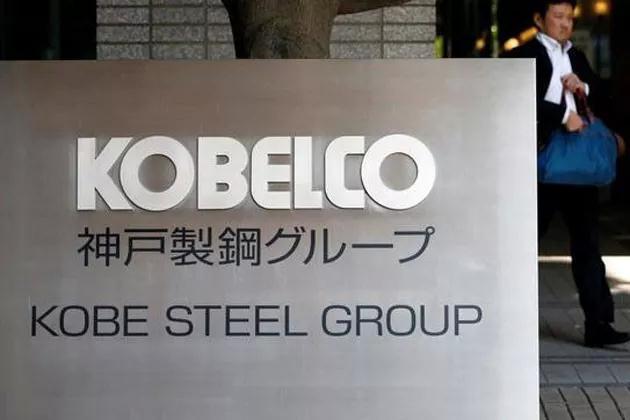
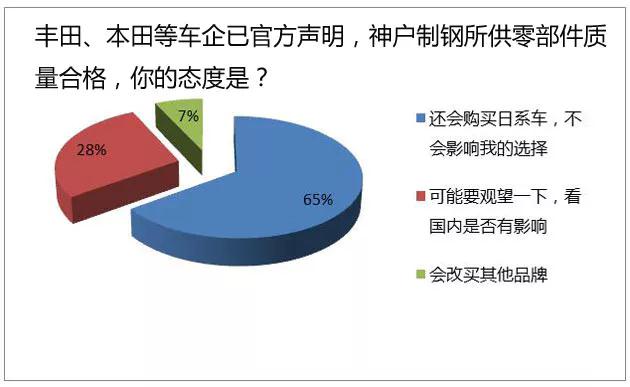
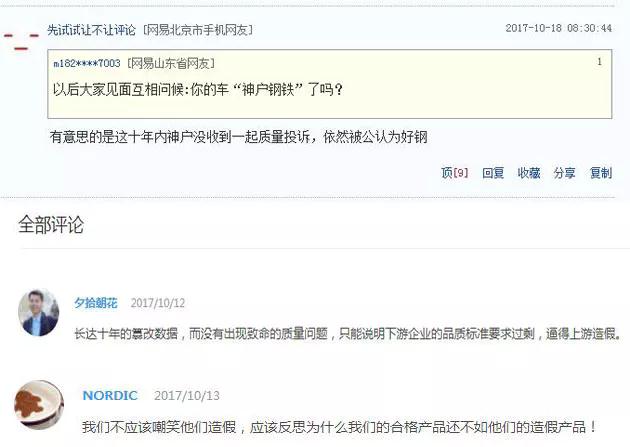
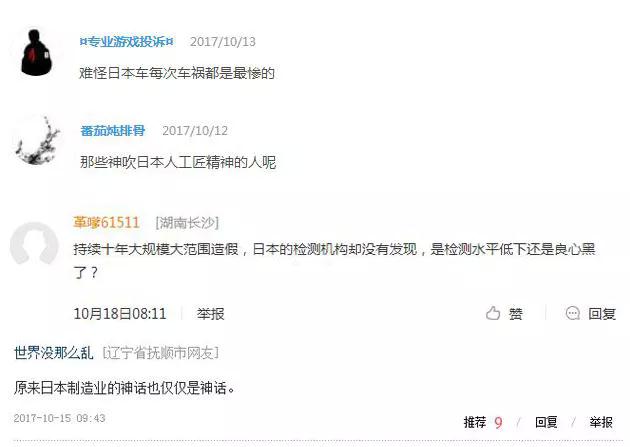
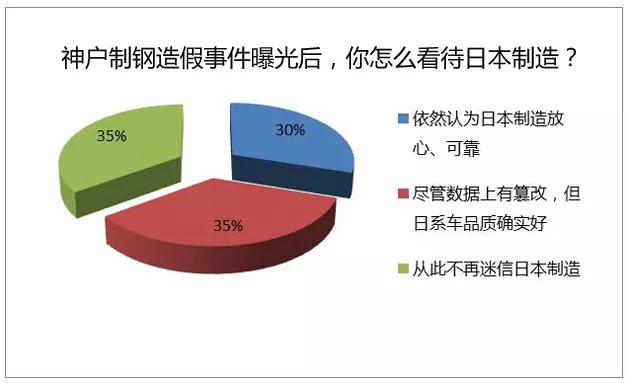
Made in Japan collapsed? Netizens don't seem to think so
The core message: After the accident of the steel manufacturing industry in Kobe was exposed, the media sighed that Japanese manufacturing myths no longer existed, and Japanese cars feared a massive recall. However, netizens do not seem to agree.